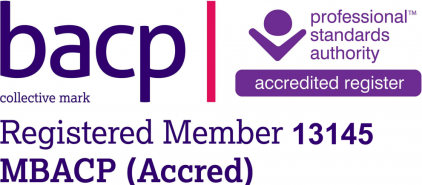So we've all been there - work might be piling up and our boss asks to submit that report a day early or we are asked to deliver an important presentation - it may simply be that we've taken on too much and we're spinning too many plates across our personal and professional lives.
That horrible feeling of stress can affect us in many ways - we may be irritable, inpatient, feel afraid, unable to switch our racing minds off, feel alone with all our worries. We may get headaches, upset stomachs, palpitations, our hands may shake or we get sweaty palms and bodies. We often can feel trapped, stuck and unable to fix the situation. Stress feels horrible and we often feel out of control.
What Is Stress
Many people fear stress - actually stress is your bodies way of telling you that things are too much or that you need to slow down or maybe to just reconsider the situation and tackle it differently. The issue is that we often don't heed the initial warnings and therefore stress gets worse - our bodies just 'shout louder' and give us even more symptoms to worry about.
So What Can We Do About Stress
There are 2 things to consider - 1) The cause or reason for the stress 2) Creating a balance in your life to help you feel emotionally stronger and more resilient to stress and stressful situations. So, what does this mean:
The Cause or Reason For Stress
Firstly, ask yourself if this is something within your control - if it is then great you can work with the situation to try to find a different approach. If it's not within your control - who is in control?
Secondly, ask yourself how important is this? Will I still be concerned about this or have any regrets in a years time?
Remember situations can be frightening but it is our response to those situations that makes them so stressful - this can be hard to hear or accept I know. Have you ever wondered why some people react differently in the same situation - some people are able to stay calm whilst others are totally frazzled.
Coaching & Counselling can really help us to unpick the situation that is causing the stress and identify new approaches in response to them. We learn very quickly to respond to certain situations in a particular way - over time this becomes a well trodden and automatic response and we feel we just cannot help responding in this way. It takes time and persistence, but believe me, you do have the ability to switch this around if you really want to.
Of course, some situations we may be able to walk away from - find a new job or partner for instance. This may help in the short term but if we continue with our same response patterns then it is likely that we will recreate similar situations in our new role or in our new relationship.
It is about taking the power back - rethinking the situation, finding new ways to approach the situation - maybe by asking for help or maybe by saying 'no' . Ask yourself what your greatest fear is - what is the worst thing that could happen - in many cases we get so caught up in the frenzy of stress that we don't feel we have many options.
Remember, a certain level of stress is normal and in fact can be helpful in motivating us to complete that task but if it is ongoing then it becomes a risk to our physical and emotional health and is worth addressing. Life is not only much more enjoyable and enriching when we don't live with stress but we become far more effective and productive so it's something to really work on.


